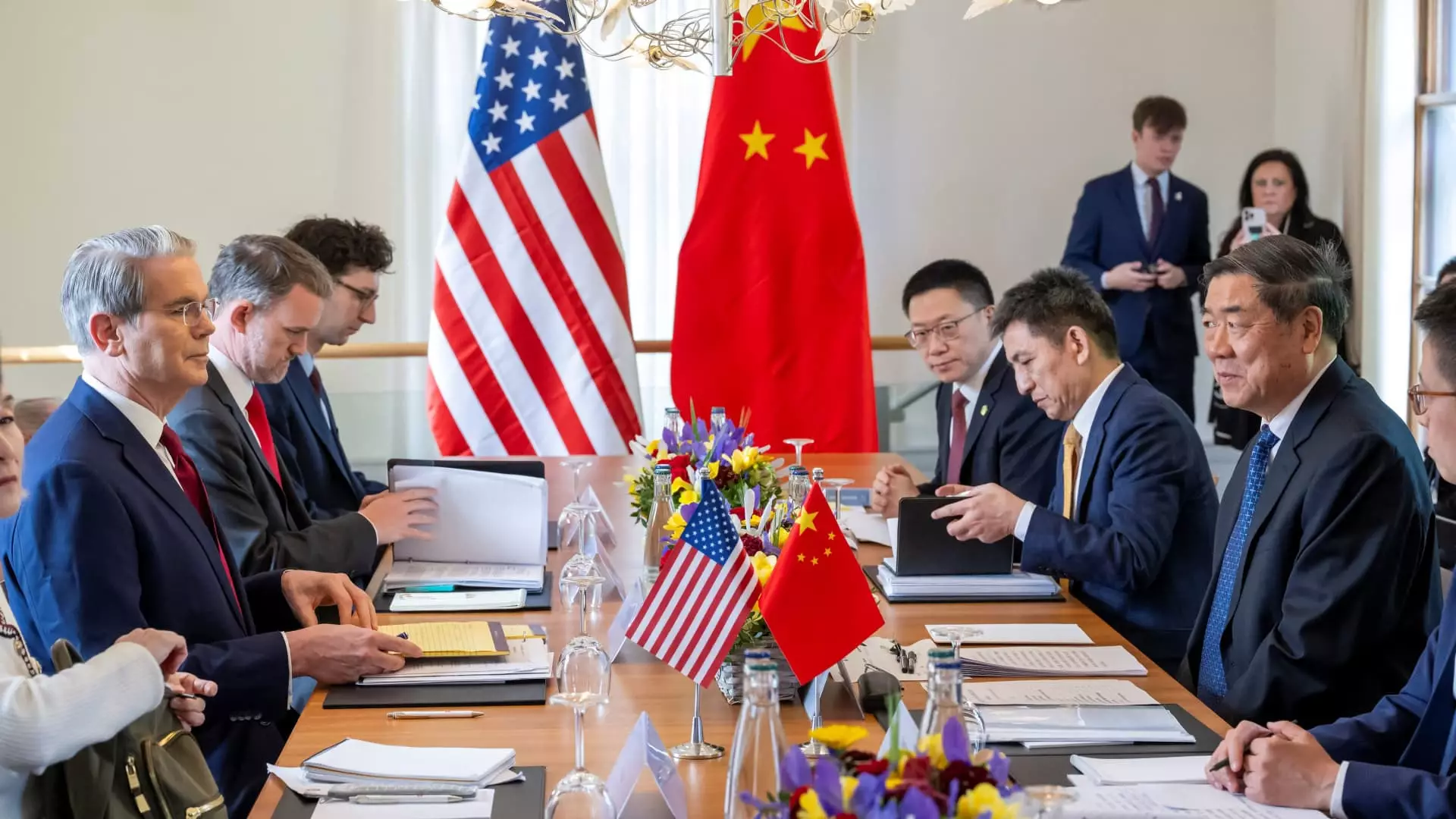In the ongoing saga of U.S.-China relations, one of the most striking revelations is the accusation that the United States is deliberately undermining its own trade agreements with China. Following a recent warning from the U.S. Commerce Department against using chips from Chinese companies—including a direct mention of Huawei—China has responded with vehement condemnation. The spokesperson from China’s Commerce Ministry expressed that the U.S. actions are not merely a diplomatic faux pas but a conscious effort to distort the market dynamics that should govern international trade. This conflict, steeped in accusations of bullying and overreach, brings into focus the true implications of protectionist policies in a globally intertwined economy.
The Real Impact of Export Controls
When the U.S. issued a warning regarding so-called “advanced-computing integrated circuits” from China, they not only targeted products but also threatened broader economic stability. By implying that certain Chinese technology companies have acted in violation of U.S. export controls, the United States escalates the already heightened scrutiny on Chinese businesses. This strategy not only jeopardizes the relationships between the two nations but also puts a strain on global supply chains, particularly in the semiconductor sector. The irony lies in the U.S. positioning itself as a defender of fair trade while engaging in practices that could collapse the very innovation they claim to champion.
The Chinese spokesperson ardently accused the U.S. of twisting export controls to serve its own narrative. Should the U.S. decision-makers fail to acknowledge the ramifications of their choices, it will not just escalate tensions, it will inadvertently perpetuate an environment where mistrust becomes a guiding principle in international commerce. Protecting domestic interests via aggressive measures may seem like a valid strategy, but it risks creating a backlash that could undermine the U.S. industry in the long term.
Protectionism: A Double-Edged Sword
Protectionist policies often carry the weight of noble intentions—safeguarding local interests, ensuring domestic job security—but the reality often looks vastly different. The U.S. is caught in a cycle of aggressive tariff cuts and reinstated trade barriers, which, paradoxically, may end up harming American industries more than their counterparts abroad. When viewed through the lens of globalization, these tactics appear as desperate measures to prop up flagging sectors rather than innovative solutions to foster economic competition.
China’s response serves to highlight not only a call for justice but a warning: the nature of protectionism has the potential to be self-defeating. By fortifying barriers against foreign products and companies, the U.S. runs the risk of diminishing its own technological advancement, thereby allowing other nations to outpace the economy in innovation and production. The suggestion that U.S. tactics might diminish American competitiveness is a pressing concern that resonates through financial circles.
The Broader Implications for Global Innovation
The commitment to unilateral measures by the U.S. could have lasting repercussions for global scientific and technological innovation. In a world where collaboration across borders leads to significant advancements—in areas such as AI, renewable energy, and healthcare—the implications of strained relations between superpowers are far-reaching. It is difficult to argue that one nation can achieve dominance in technological areas alone; the interplay of international cooperation often propels advancements further and faster.
By undermining the very foundation of these relationships with baseless accusations and unilateral controls, the U.S. is effectively poisoning the well from which it draws its own progress. The heightened tensions are a stark reminder that the road to technological innovation is paved with collaboration, not isolation.
As both nations grapple with these divisive issues, one wonders about the efficacy of such tactics. Are we truly advocating for fair trade, or merely engaging in an insidiously protectionist game that benefits no one in the long run? The future of trade and technology holds captive to decisions made today, and the cost of neglect could lead to an economic landscape far bleaker than any of us could imagine.


Leave a Reply